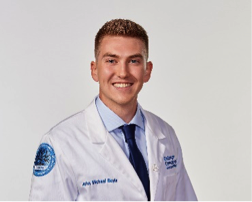Author Interviews, Education, Gender Differences, JAMA / 17.07.2021
Lower Death Rate Among Patients of Female Physicians May Be Due to More Recent Women Medical School Grads
MedicalResearch.com Interview with:
Anjali Sergeant
McMaster Medicine Class of 2022
MedicalResearch.com: What is the background for this study? What are the main findings?
Response: This collaborative study from the University of Toronto and McMaster University found that inpatients in the Greater Toronto Area (GTA) cared for by female physicians had lower mortality rates compared to those cared for by male physicians. Specifically, a 0.47% difference in patient deaths was reported, which is significant in the context of thousands of deaths in Ontario hospitals each year. This supports similar findings from an American study (Tsugawa et. al) published in 2017.
Our study also examined gender-based differences in medical practice, including lab and imaging tests ordered, and medications prescribed. Female doctors ordered significantly more imaging tests for their patients but this factor did not explain their lower patient death rates.
The mortality difference shrank when accounting for the number of years that doctors were in practice. This suggests that patients of female doctors may have better outcomes partially because more women make up newer medical grads in Canada, who may be more up-to-date on clinical guidelines.
(more…)





















 Background: To identify individual-level factors associated with COVID-19-related impacts on recovery in 216 participants originally enrolled in the SUBLOCADE® (buprenorphine extended-release) clinical program.
Within the fifteen-month study 216 participants, during the period of September 2021 through January 2021, were asked how the COVID-19 crisis affected their recovery from substance use, utilizing self-reported measures.
Background: To identify individual-level factors associated with COVID-19-related impacts on recovery in 216 participants originally enrolled in the SUBLOCADE® (buprenorphine extended-release) clinical program.
Within the fifteen-month study 216 participants, during the period of September 2021 through January 2021, were asked how the COVID-19 crisis affected their recovery from substance use, utilizing self-reported measures.





